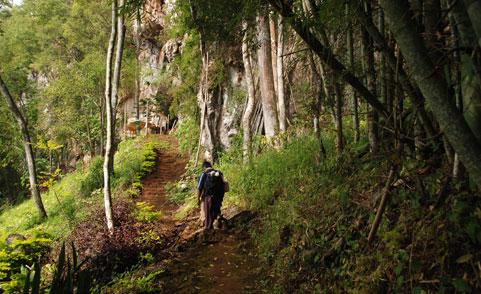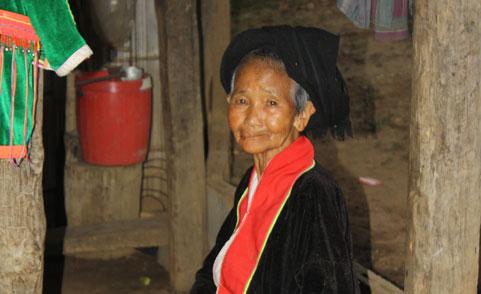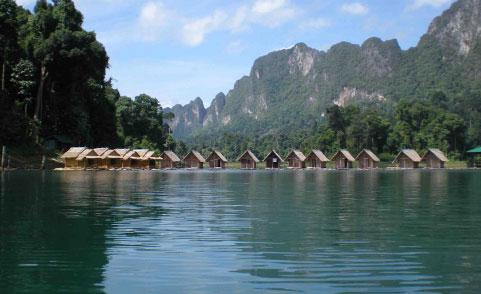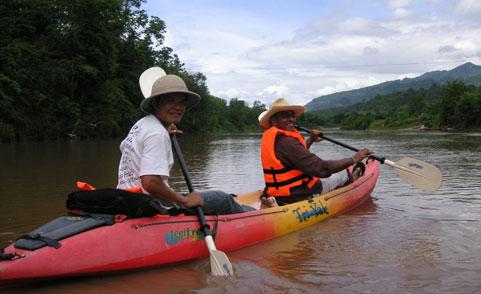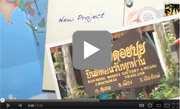Akha hilltribe
The Akha originated in Yunnan in Southern China. Yunnan has the highest Akha population. The Akha are being considered part of the Hani minority. The Hani number about one million. How many of these are Akha is not clear. Over several centuries many Akha have been migrating southward from their original home. In the middle of the 19th century significant numbers were moving into the Kengtung State, the easternmost of the Shan States of Burma. Others made their way into Laos. The Akha in Thailand came from Burma.
The first Akha village in Thailand was probably established in 1903 in the Phaya Phrai area on the Burmese border. Phaya Phrai is in Mae Fah Luang District, Chiang Rai.
In Thailand there are basically two subgroups of Akha: Akha Loi Mi and Akha U Lo. The Loi Mi are easily recognizable by the distinctive metal plate on the back of the women's head dress. The U Lo women wear a conical headdress.
The Akha have a very closely related language with the Lisu and Lahu as they once belonged to the Lolo hunter tribe people that once ruled the Paoshan and Teinchung plains before the invasion of Ming Dynasty (A.D 1644) in Yunan, China.
The practice of their mythology includes ornately carved village gates made of wood where the guardian spirits are said to dwell. They have an extensive recollection of ancestors going back 15 generations and exhibited in chants.
Culture and Lifestyle
The Akha generally live in bamboo houses raised on low wooden stilts in hilly areas. These huts are divided by gender - one side is for the women, and the other side, occupied by the men, is used as a more public area. The Akha subsist through an often destructive form of slash and burn agriculture which can result in elimination of old growth forest, native animal species and serious soil runoff problems. They are expert farmers who focus on mountain rice, corn, and soybeans that are planted in seasonal shifts. The Akha are also very efficient hunters, though their prey sometimes includes endangered species. Some Akha grew opium for income. A area with a large percentage of Akha is Mae Salong (now known as Santikhiri) in Chiang Rai province.
Akha villages are also found in the area of Ban Therd Thai (formerly known as Ban Hin Taek), a former residence and base of the so-called "Opium King", Khun Sa.
The Akha put a particularly heavy emphasis on genealogy - they are taught their family history at a very early age, and their culture has a strong focus on honouring ancestors and their parents, though they dispute that this represents a form of ancestor worship. A better description of Akha religion would be animism, as they believe in a world filled with spirits, both good and bad, that have a definite physical impact on the world. They believe in a natural cycle of balance that, if disrupted, can result in illness, hardship, or even death.
Human rights and other issues
The Akha have faced many controversies related to human rights and justice, particularly in the countries of Thailand and China. Their settled land is built upon hillsides that are valuable for both timber production and farming, and as such has been the target of seizure by government forces from both countries[citation needed]. Akha settlements and agricultural slash and burn sites increasingly encroach on national forests containing native ecosystems, thus creating another basis for controversy. The Akha are one of the largest populations among 20 ethnic groups living in the Nam Ha National Protected Area of Laos. The area is part of an eco-tourism effort to alleviate poverty. The Akha, like the other hilltribes, are viewed negatively by mainstream Thai people, generally referred to as "Egaw," a derogatory racial slur they find highly offensive. The use of the word is extremely commonplace and it is found on many tour websites and even in academic writings.


